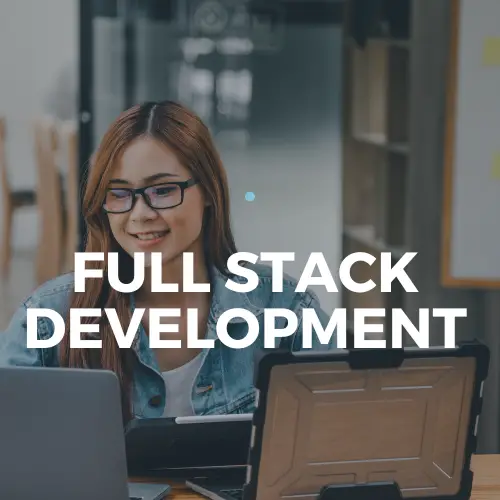Full Stack Development Tips that can help You Become a Professional
Introduction to Full Stack Development
Full stack development has become a major area in the realm of web and software development. A stack developer has the knowledge and can code the front-end and back-end of an application or website. Most of them adopt this comprehensive skill to cover all areas in software development right from the user interface to managing. If you want to read about full stack developer then read this article till the end. In this respect, continue reading to know the various skills, equipment, and techniques that can assist you to be a success this kind of environment.
For more articles check Newsworldportal
Table of Contents
1. Skills and Tools Required
2. Front-end Development
3. Back-end Development
4. Database Management
5. Version Control
6. Continuous Integration and Deployment
7. Building a Strong Portfolio
8. Networking and Collaboration
9. Staying Updated with New Technologies
10. Conclusion
11. FAQ
Skills and Tools Required
If you decide to become a full stack developer you have to master many skills and learn about the base equipment. These simple tasks include application of programming languages like HTML, CSS, JavaScript and Python. Moreover, it will be extremely beneficial to become familiar with front-end frameworks like AngularJS, React, Vue.js, or back-end frameworks like Node.js, Django and so on.
Additionally, there is a need to have good knowledge of Work-flows like MySQL, MongoDB or PostgreSQL. Besides these technical competencies other important things to develop includes problem solving skills, precision, and communication skills put one in a vantage point in the industry.
Front-end Development
Front-end development deals more with the appearance and look and feel of an application or a website. Considering oneself a full stack developer means that it is crucial to keep up with the front-end developments. It is essential that you should be familiar with HTML to write structure of the web-sites, with CSS to paint or style, and JavaScript to add interactivity. Knowing is half the battle when it comes to front end frameworks and libraries such as Bootstrap, Material-UIs, or Foundation to name but a few that can help you in the development process.
Back-end Development
While front-end development deals with the client-side of an application, back-end development involves server-side coding and logic. To excel in this area, you need to gain proficiency in at least one programming language such as Python, Ruby, or Java, and its corresponding frameworks. Additionally, knowledge of RESTful APIs, web servers, and server management will prove beneficial.
Database Management
Efficiently managing databases is a crucial aspect of full stack development. Acquiring expertise in database management systems, along with querying languages like SQL, will enable you to store and retrieve data seamlessly. Understanding concepts such as data normalization and database optimization will help you design efficient and scalable database architectures.
Version Control
Version control systems like Git means, through which programmers can track the changes made in a particular code and also can work jointly with other programmers and in case can return to the previous version of the code if is necessary. Knowledge of these tools will improve working productivity and foster better relationships in a development project team.
Continuous Integration and Deployment
Some of the key tasks that should be automated in today’s hi-speed development environment includes how the changes in code are integrated, how applications are deployed and so on. If you are not already, get to know with Continuous Integration and Deployment instruments such as Jenkins, Travis CI, or GitLab CI/CD.
Building a Strong Portfolio
A good portfolio of your work and achievements will uncinate the probability of you being awarded better paid deals. Build a personal website that will consist of projects мен what you have done and technical skills and the issues you solved. This will be a great testament of the skills you have in full stack developement.
Networking and Collaboration
It is true that Networking and collaboration are expansive in professional advancement. Engage with fellow developers through online communities, attend tech conferences, and participate in hackathons. Collaborating with others not only expands your knowledge but also opens up new doors for learning and career opportunities.
Staying Updated with New Technologies
The tech industry is ever-evolving, with new frameworks and technologies emerging regularly. As a full stack developer, it is crucial to stay updated with these advancements. Follow industry blogs, join relevant forums or communities, and allocate time to self-learning to ensure you are well-versed in the latest tools and practices.
Conclusion
Becoming a successful full stack developer entails acquiring a multitude of skills, mastering various tools, and keeping up with industry trends. The journey may be challenging, but with perseverance, dedication, and continuous learning, you can achieve your goals. Therefore, make the first step today and become a true full stack developer opening the door to a world of opportunities.
FAQ
Q: What does a full stack developer do?
A: Full Stack Developer: Front End developer and back end developer, where the individual is involved in developing interfaces, servers and databases.
Q: Actually, Which programming languages are required for Full Stack Development?
A: HTML, CSS, JavaScript, and at least once back end language such as Python or Java is required proficiency for all full stack developers.
Q: What are some things related to work that I can do to best represent me as full stack developer?
A: Portfolio is also an effective way to demonstrate your performance and projects to attract employers’ attention in.showcasing the acquired skills.
Q: What should I do to ensure that I am informed of latest technologies on the market?
A: To remain updated with the latest tools and practices use the industry blogs and forums and set time aside for reading.






